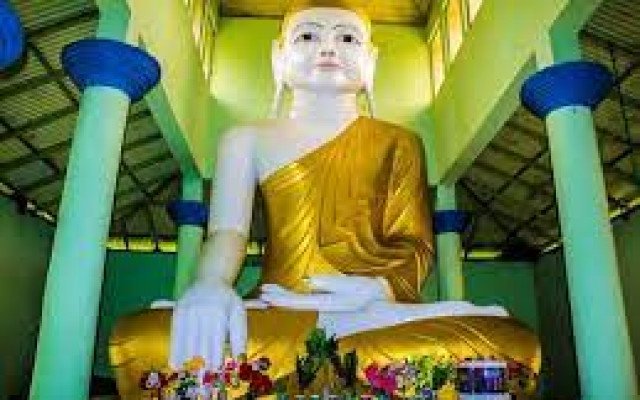The establishment of a Water Museum by ActionAid Bangladesh evolved in the backdrop of re-imagining rivers from a human and ecological point of view. ActionAid Bangladesh believes in building critical awareness of the need around water commons with the aim of inspiring concerted efforts, starting from conservation to water policy revitalization. The Water Museum is our call to action.
The South Asian nations lack in adequate initiatives to protect the rivers. Biased towards structural intervention, the bilateral treaties and government policies on water management do not look at water from a holistic point of view.
The need to shift our attention to water comes from a history of abuse we have wrought on water and watercourses in a number of ways. Large embankments and structural interventions, uncontrolled urbanization and encroachment, river pollution and mismanagement etc. have taken a toll which has been manifested into desertification, intrusion of salinity in sweet water bodies, erratic rainfall and biodegradation.
The rivers have shrunk. The marine diversity and coastal ecology have drastically worsened. Surface water has fallen and contaminated. Salinity has increased. The lives and the livelihoods of people are badly affected. The more than 800 rivers and tributaries that crisscross Bangladesh’s plain land that gave shape to its economy, culture and heritage are now at risk. So is the general wellbeing of people.
Thanks to the ‘water-commons’ platform, a regional voice is growing in South Asia that started with a vision to uphold the issue of river and its water from a position beyond political boundaries. The Water Museum is our call to action.
The Water Museum has got several permanent collections: Water samples of 87 transboundary rivers, artifacts of riverine community, infographics on water footprints, the riverine activities and the Kuakata Declaration, a Bangladesh’s rivers map and a list of Bangladesh’s trans-boundary rivers; rivers-related literature, research books and documentaries
Permanent Collections:
1. Water samples of 87 trans-boundary rivers
2. Artifacts of riverine community
3. Infographics on water foot prints, riverine activities,
Kuakata Declaration
4. Bangladesh’s river map
5. Rivers related literature, research books and
documentaries.
6. List of Bangladesh’s trans-boundary rivers
Temporary exhibitions
Local Pitha Utsav fair (2019)
A local ‘Pitha Utsav’ was arranged by ActionAid Bangladesh during the 4th International Water Conference titled, ‘River: A Living Being’ in 2019 at Water Museum, Kalapara, Patuakhali.
Members of different projects of Local Rights Programming (LRP) participated in the Pitha festival, together with the women members of ActionAid projects. More than 25 types of pitha were exhibited in the fair. Also local women entrepreneurs displayed and sold different kinds of local seasonal food items. In continuation of this, the renowned band ‘Joler Gaan’ presented water related songs for the evening.








